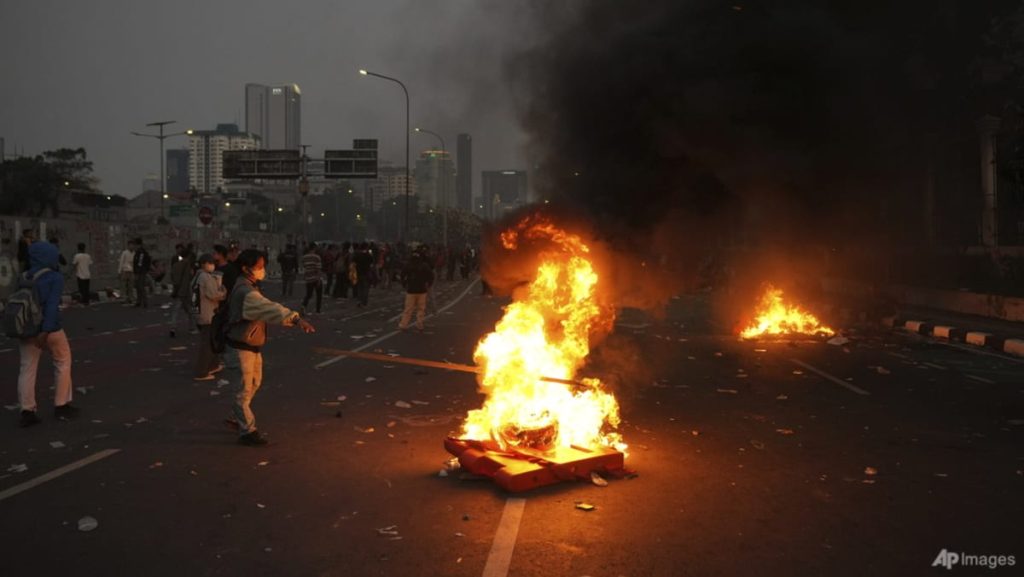The protests in Indonesia were ignited by a dispute over which government body holds the authority to determine electoral laws. The parliament intended to ratify changes to the law on Thursday which would have overturned a decision made by the constitutional court earlier in the week. However, the parliament ultimately postponed the ratification due to a lack of quorum and later abandoned the plan altogether.
The power struggle between the parliament and the court has caused widespread anger in Indonesia, one of the world’s largest democracies. President Joko Widodo, commonly known as Jokowi, has been criticized for what analysts view as attempts to consolidate his power before his term ends in October. Jokowi has already completed two terms, the maximum allowed, and will soon be succeeded by president-elect Prabowo Subianto and vice-president-elect Gibran Rakabuming Raka, who is Jokowi’s eldest son.
The protests in Indonesia highlight the underlying tensions and struggles for power in the country’s political landscape. The clash between the parliament and the court has raised concerns about democratic processes and the rule of law in Indonesia. Critics argue that Jokowi’s actions are aimed at strengthening his influence and control over the government before his departure from office.
The ongoing protests and political turmoil in Indonesia have brought attention to the country’s democratic institutions and the need for transparency and accountability in governance. The situation has also raised questions about the transition of power and the potential implications for democracy in Indonesia. As the country prepares for a new leadership, concerns about political stability and the protection of democratic values remain at the forefront.
The unrest in Indonesia reflects the broader challenges facing democracies around the world, where power struggles and disputes over electoral processes can threaten the stability and legitimacy of government institutions. The protests serve as a reminder of the importance of upholding democratic principles and ensuring that government actions are conducted in accordance with the rule of law. The outcome of the power struggle in Indonesia will have implications for the country’s future political landscape and the protection of democratic values.
In conclusion, the protests in Indonesia underscore the complexities and tensions inherent in democratic transitions and power struggles within government institutions. The clash between the parliament and the court, fueled by debates over electoral laws, has exposed underlying issues related to governance and the rule of law in Indonesia. As the country prepares for a new leadership transition, the focus remains on the need for transparency, accountability, and adherence to democratic principles. The protests serve as a reminder of the challenges facing democracies globally and the importance of upholding democratic values in the face of power struggles and political unrest.













